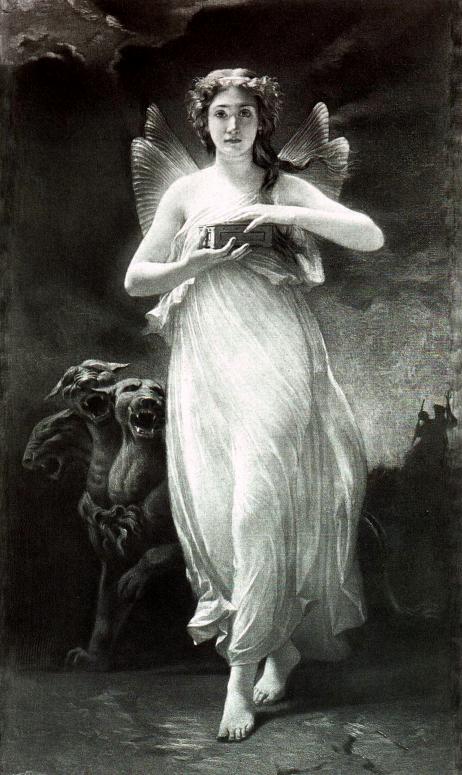Let us now understand doing (causing) in terms of a classification. Since a doing (causing) is always either in relation to being or in relation to not-being, (as has been said), we will be obliged to add “to be” or “not to be” to the distinct modes of doing (causing) in order for them to be clearly distinguished.The Latin for 'doing/causing,' Brandon notes, is facere, which means 'making something so.' It can be substituted for any verb, even one that means making something not to be so. Anselm then delves into six ways to make something be/not be:
- when a cause causes to be that which it is said to cause
- when a cause does not cause to be that which it is said to cause
- when a cause causes something else to be
- when a cause does not cause something else to be
- when a cause causes something else not to be
- when a cause does not cause something else not to be
1. John makes Bob dead (directly)
When someone who kills a man with a sword is said to cause him to be dead, [it is said] in the first mode. For he directly (per se) causes the very thing which he is said to cause.2. John does not make Bob not to be dead (directly)
If I say, "John makes it so that Bob is dead", I could also mean that Bob is dead, and John is able to make him not-dead, but is not doing so. For example, if in Game of Thrones Thoros of Myr could make Beric Dondarrion not to be dead by his magical powers but does not do so, we can say that Thoros made it so that Beric was dead.3. John makes Bob dead (by making something else make him dead)
If I say, "John makes it so that Bob is dead", I could also mean that John arranged it so that something else would make Bob die -- for instance, by hiring an assassin.4. John makes Bob dead (by not making something else make him not dead)
John can make Bob dead by not giving Bob a weapon to defend himself when the assassin comes, or by otherwise not stopping the assassin.5. John makes Bob dead (by making something else not make him not dead)
John can make Bob dead by taking away a weapon that Bob already has so he cannot defend himself when the assassin comes.6. John does not make Bob not to be dead (by not making something else not make him dead)
John can make Bob to be dead by not taking action to make him not dead. For example, if John does not disarm the assassin or did not hide Bob when the Gestapo came for him. That is, he does not cause something else not to be.These six modes can apply universally, since doing or making [like facere] can substitute for any verb. We can vow or make a vow; we can steal or make something to be stolen. This can have great utility in plotting stories. Think of all the ways people made Robb Stark dead at the Red Wedding: by skewering him with arrows or stabbing him [Roose Bolton], by hiring those who did [Tywin Lannister], by disarming him beforehand [Walder Frey], by not warning him, by sending away sympathizers who might have warned him, by killing the direwolf and the Stark bannermen who might have defended him, and so on. Each bore some share of responsibility for the death, even if they did not strike the actual fatal blow.
"[W]hen a problem about the faith comes up it is not only the heretical person who is condemned but also the person who is in a position to correct the heresy of others and fails to do so."
-- Sentences against the Three Chapters, II Constantinople
A stories in which all actions are first mode -- X does Y -- tend to be thin. Even when enjoyable, they are not psychologically filling. Considering all six modes can make the text richer and the characters thicker.



